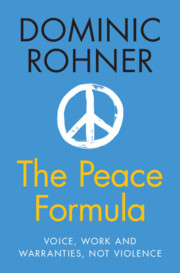4 - Poverty, Populations and Petrol
Why Do People Fight?
from Part II - The Logic of Evil
Published online by Cambridge University Press: aN Invalid Date NaN
Summary
This chapter focuses on explaining the powerful logic of perilous promises and hidden information, as well as the dangers of low opportunity costs and attractive rents. We start out by explaining how in many circumstances peaceful bargaining succeeds in preventing hostilities – as the “peace dividend” creates a range of win–win bargaining solutions. Sadly, though, asymmetric information, commitment problems and political bias can lead to bargaining failure and the outbreak of war. Further, when the stakes of contest are high and opportunity costs low, the scope for peaceful bargaining shrinks. In particular, we show that being out of work and out of options makes somebody easy prey for rebel headhunters. This is exemplified by the dreadful consequences of bad harvests. Next, we examine the role of ethnic cleavages and how they tend to be exploited by divisive ethnic politics. Finally, the chapter discusses the curse of natural resources. Countries blessed with valuable soils tend to suffer from conflict, often leaving them poorer than countries lacking natural resources.
Keywords
- Type
- Chapter
- Information
- The Peace FormulaVoice, Work and Warranties, Not Violence, pp. 49 - 66Publisher: Cambridge University PressPrint publication year: 2024



